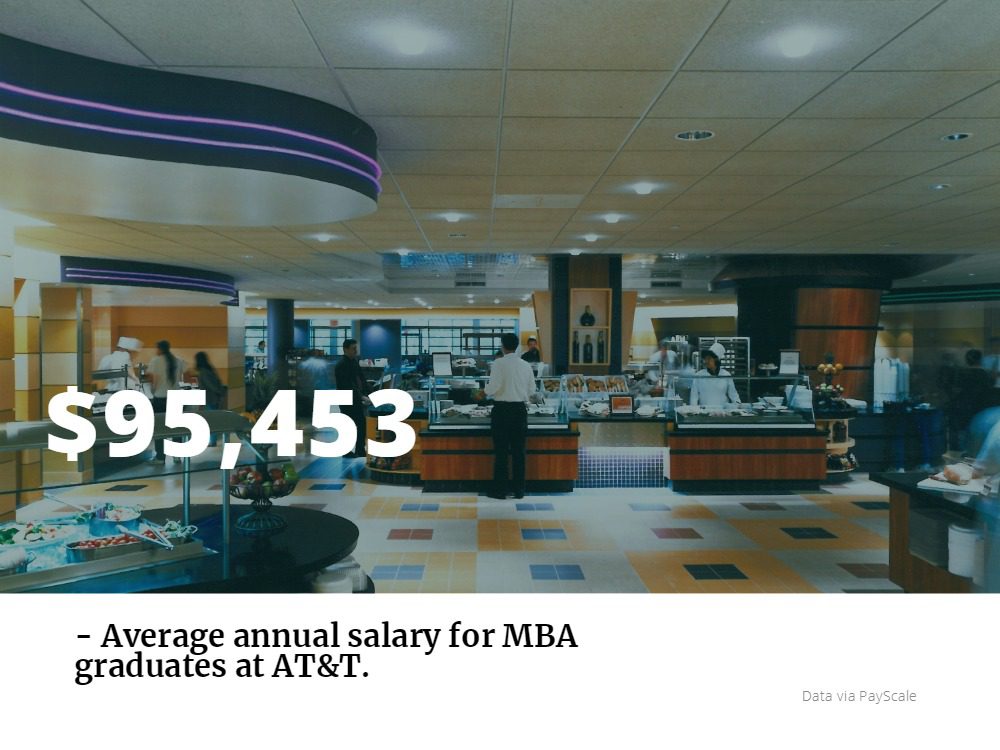Register for the 2019 Forté MBA Forums for Women

Registration is open for the 2019 Forté MBA Forums. Designed for women considering an MBA, the Forums provide an ideal opportunity to learn more about the value of an MBA from admissions reps, alumnae, and current students at top business schools. Open to all women—career changers, college students planning the future, or career professionals looking to go to the next level—the events provide a distinct MBA advantage.
About the Forté MBA Forums
The MBA Forums are FREE and held in 11 cities across the U.S. and Europe. The events are a chance for women to build their peer support network and meet other successful businesswomen from a diverse range of industries. The MBA Forums offers exclusive insights into the MBA admissions process.
“The Forté Forum event provided the exact insights we were looking for,” said Madeline Keulen, Forté MBA Forum attendee and 2019 HBS alum. “Most of the schools I was interested in had representatives at the event who could speak to the specifics of their programs, and panels of alumni enhanced the richness of the experience through their personal stories of why they chose to pursue an MBA. I have a much better sense of where I’d fit best.”
2019 Event Dates and Locations

- August 12, Washington, D.C.
- August 13, Houston, TX
- August 14, Atlanta, GA
- August 15, Boston, MA
- August 19, Los Angeles, CA
- August 20, Seattle, WA
- August 22, San Francisco, CA
- August 26, Toronto, Canada
- August 27, Chicago, IL
- August 28, New York City, NY
- October 29, London, England
Sample Event Format
6–8:15 p.m. – Registration and School Fair
- Connect with admissions at top business schools
- Learn more about the admissions process
- Find the right school for you
- Networking reception
7–8 p.m. – MBA Alumnae Panel
Get advice and hear stories from top MBA women in a range of industries and at various career stages. Learn what motivated them to earn their MBA and the successes and challenges they’ve faced.
8:15–9 p.m. – Admissions Panel
Enjoy a panel of seasoned MBA admissions professionals from top programs. Learn more about admissions requirements, researching schools, applications, and financing.
Visit the site to see more details about locations and to register!
The Big Picture: The 5 Most Important MBA Numbers of 2018

Each year there’s a ton of new information that comes out about MBA programs. From new rankings to the latest GMAC news, there are a thousand little tidbits that can overwhelm applicants, students, and alumni. We’ve collected the most important MBA numbers of 2018.
To pare down the news into the information you need to know, we’ve taken a look at the big picture of the MBA for 2018 and outlined the five most important pieces of data you need to know. We’re talking about everything from the decline and U.S. MBA applications to the increase in female enrollment, the higher salaries and GMAT scores, as well as the increase in interest in technology. Continue reading…
Top MBA Recruiters: AT&T

Finding employment after graduating from an MBA program can be a challenge for some. Thankfully, new MBAs are never alone in the process. From companies that actively recruit talent from business schools throughout the country, to MBA programs themselves helping to facilitate interviews and job referrals for their students, students should be sure to take advantage of resources available to them.
A look at 2017 employment data from a top MBA program like the University of Chicago’s Booth School of Business reveals the overwhelming trend: a whopping 89.2 percent of students found employment through university-facilitated avenues, be it on-campus recruitment and interviews, networking events, or through a Booth-facilitated summer employer. The success of campus recruitment benefits everyone, not only because universities are willing to open their doors and advocate for their students, but because top companies go out of their way to recruit young talent and create opportunities for them.
One such company is American multinational telecommunications holding company, AT&T. Founded in 1983 as the Southwestern Bell Telephone Company—part of the Bell Telephone Company with roots in the late 19th century—today AT&T has more than 254,000 employees worldwide and $190 billion in revenue. With a commitment to MBA graduates through internships and early career development programs, AT&T makes the grade as a top recruiter and employment destination for MBAs.
What Is An AT&T Career Like for MBAs?
It should be no surprise that MBAs love working at AT&T when you know the kind of investment this company makes in the educational development of its employees. In 2016, AT&T spent $250 million on employee training and invested roughly 20 million hours into the process. With so many opportunities for ambitious team members to accelerate their careers through leadership and development programs, this is the perfect company for those looking to quickly rise into leadership roles.
AT&T has been awarded many times for its workplace culture, including being named on Fortune‘s ‘100 Best Companies to Work for in 2018‘ and 3rd overall on the Diversity Inc. list of the ‘Top 50 Companies for Diversity‘ in 2018.
Of course, it pays to have an AT&T career, even beyond a positive workplace culture. According to PayScale data, MBA graduates at AT&T earn an average annual salary over $95,000. This can range as high as $142,000 for those in operations management. Employees, including interns, are rewarded with competitive compensation and benefits, including paid holidays, time off, and discounts for AT&T products.

Getting Started
MBA students interested in starting an AT&T career should keep an eye out for the various recruitment events set up through their university, where they can apply on campus and may be selected to interview with college recruiting managers. Because of the company’s heavy investment in a diverse workforce, AT&T also has a strong presence at recruitment conferences like the Forté Foundation for female business leaders, Reaching Out MBA for LGBT candidates, and the National Black MBA Association (NBMBAA).
Many MBAs start their AT&T career through its many internship opportunities, which are found at locations throughout the country and typically last 10-12 weeks. AT&T offers these paid internships a huge variety of fields, such as data analytics, cybersecurity, entertainment group technology, software development, and leadership, among others.
In addition to internships, MBA graduates may apply for one of the many AT&T career development programs. These are full-time, paid rotational programs that may last anywhere from two to three years, providing hands-on experience, exposure and opportunity. Development programs at AT&T include:
- B2B Sales
- Cybersecurity Development
- Engineering and Operations Development
- Finance Leadership Development
- Leadership Development
- Software Development
What Does AT&T Look for in MBA Candidates?
When hiring for its MBA internships and development programs, AT&T looks for students with at least three years of professional experience with the ability to collaborate on complex issues and thrive in a leadership role. The company seeks candidates who are passionate about the role technology can play in people’s lives and its capacity to transform.
In addition to the internships and early career programs, AT&T also looks for more experienced MBA holders for higher-level executive and management positions. For these roles, the company seeks candidates with at least five to eight years in experience related to the role with the ability to work in a team, be a self-starter, and think critically.
Top Business Schools Respond to Repeal of Diversity Guidelines

Diversity in the college admissions process was dealt a blow in early July when the Trump administration withdrew a guidance that encouraged affirmative action in regards to enrollment. The move was announced when the departments of Justice and Education retracted several letters and memos that advised schools on how they could consider diversity in admissions and other various decisions. Continue reading…
Your Essential Guide to Pre-MBA Diversity Conferences, Boot Camps, and Forums

Several organizations are focused on helping increase the pipeline of underrepresented demographics—such as women, LGBTQ students, and those from diverse cultural and ethnic backgrounds—to business school and the larger business world. As part of these efforts, many host MBA diversity conferences, boot camps, and forums providing recruiting and networking opportunities to admitted students headed off to business school in the fall. For eligible participants, these opportunities, designed to provide a head start for students in the MBA recruiting process before they even arrive on campus, are well worth pursuing.
Forté MBA Women’s Leadership Conference
 The Forté Foundation, a non-profit consortium of leading companies and top business schools, works specifically to expand opportunities for women in business through a range of financial and educational opportunities. A centerpiece of these efforts is the annual Forté MBA Women’s Leadership Conference, which will take place this year in Atlanta on June 15 and 16. Registration is now open for both current business school students and those slated to start their MBA programs next fall.
The Forté Foundation, a non-profit consortium of leading companies and top business schools, works specifically to expand opportunities for women in business through a range of financial and educational opportunities. A centerpiece of these efforts is the annual Forté MBA Women’s Leadership Conference, which will take place this year in Atlanta on June 15 and 16. Registration is now open for both current business school students and those slated to start their MBA programs next fall.
The two-day conference provides an opportunity for women pursuing their MBA to connect with hundreds of other like-minded students. Billed as a chance to “learn from highly successful business leaders how to develop stand-out skills and project an authentic leadership style,” it also presents valuable networking opportunities. Highlights of this year’s conference include a meet and greet with Fortune 100 recruiters, more than 150 speakers and presentations from a variety of industries and career paths, and a keynote lecture by USA Today Editor-In-Chief Joanne Lipman. Conference attendees can also take part in the Forté Power Pitch Competition, pitching their ventures to a panel of judges for a chance at cash prizes.
Reaching Out MBA Conference
 LGBTQ+ students and their allies should familiarize themselves, if they are not already, with Reaching Out MBA (ROMBA). This organization focuses on educating current and prospective MBA students on LGBTQ-specific issues and connecting current LGBTQ students with each other and with alumni communities.
LGBTQ+ students and their allies should familiarize themselves, if they are not already, with Reaching Out MBA (ROMBA). This organization focuses on educating current and prospective MBA students on LGBTQ-specific issues and connecting current LGBTQ students with each other and with alumni communities.
“The conference connects more than 1,600 members of the LGBTQ MBA student and alumni community with more than 90 companies looking specifically or LGBTQ talent,” ROMBA Executive Director Matt Kidd explains. Registration is now open for this year’s conference, which will take place in Minneapolis on October 4th through 6th.
ROMBA also helps prepare students in advance of the conference. “We want to ensure they are well positioned for their conversations with our corporate partners at the conference and beyond,” Kidd adds. ROMBA also offers pre-admission mentoring, a summer consulting project, and webinars designed to help students gain a full understanding of the industries represented at the conference.
MBA JumpStart
 Unlike Forté and ROMBA, which focus on specific student demographic groups, other organizations offer pre-MBA opportunities for students from a range of diverse backgrounds. One such organization, JumpStart Advisory Group (JSAG), provides an array of resources and tools through its ongoing Diversity Forums.
Unlike Forté and ROMBA, which focus on specific student demographic groups, other organizations offer pre-MBA opportunities for students from a range of diverse backgrounds. One such organization, JumpStart Advisory Group (JSAG), provides an array of resources and tools through its ongoing Diversity Forums.
JumpStart will host its Brand Management and Marketing Diversity Forum in Philadelphia on May 20th and 21st and its Financial Services and Consulting Diversity Forum in Chicago from July 10th through 13th. In Chicago, finance will be the focus on Tuesday and Wednesday and consulting on Thursday and Friday, although enrolled students interested in learning about both industries can choose to attend the entire event.
“Selected students from top-tier MBA programs attend industry-specific workshops, are introduced to case studies, and are provided with endless opportunities for networking with corporate partner representatives and other incoming MBA students prior to matriculation,” according to the JumpStart website. Students interested in attending should apply here by May 13.
“Diversity for MBA JumpStart is defined as individuals that are under-represented in business including women, Black, African-American, or of African descent, Hispanic, Latin-American, or of Latin descent, Native American or American Indian, Asian and Pacific Islander,” the website notes.
School-Year Fellowship Opportunities
In addition to pre-MBA conferences and workshops, students from diverse backgrounds can also apply for a range of fellowship opportunities once they have been admitted to a leading MBA program.
The Toigo Foundation, which is focused on the finance industry, aims to prepare under-represented MBA students for leadership roles and help foster environments where diverse students can thrive during and after their MBA. Recipients of the Toigo Fellowship participate in two weekends of intense training during each year of their MBA program. These training sessions include leadership development and mentoring, networking opportunities, and the chance to make lasting connections across a range of financial industries. Applications are due by April 30, and financial awards vary depending on achievement and financial need. “The selection of each year’s class of Toigo Fellows is a fluid process and not limited to a specific number,” notes the Tioga website. “Recently, we have selected as many as 80 students (from our applicant pool of nearly 400) to become Toigo Fellows.”
In addition to the nonprofit organizations listed above, many well-known corporations also offer fellowship programs of their own that include financial assistance, conferences, and bootcamp-style experiences for students of color, LGBTQ students, and students with disabilities.
For example, Bank of America Merrill Lynch offers a $40,000 fellowship toward first-year tuition as well as a paid summer internship and opportunities for additional funding in the second year of business school. Goldman Sachs features a similar MBA fellowship program that provides funding to cover first-year tuition, a guaranteed summer associate salary, and a signing bonus that carries an additional $40,000 award upon acceptance of a post-MBA full-time offer. To learn about even more corporate MBA fellowship opportunities, click here.
Now, we understand completely that the thought of another application process on the heels of applying to business school may seem groan-worthy to many. But for students from diverse backgrounds, exploring the opportunities presented as part of these pre-MBA diversity conferences, boot camps, forums, and fellowship programs can certainly make the additional effort pay off.
This article has been edited and republished with permissions from our sister site, Clear Admit.
From Just One Woman to 39 Percent of the Class—and Other Ways LBS Has Changed Over the Past 50 Years

The 2017-18 academic year marks the 50th anniversary of the MBA program at London Business School (LBS). Since 1968, the school has offered a two-year Master of Science (MSc) in Business Studies degree program—the original MBA—and has continuously refined its offerings since that time. In celebration of the 50-year mark, LBS is looking back at how far the program has come.
The Beginning
In 1966, two years after London Business School opened its doors, the school launched a two-year Master of Science (MSc) in Business Studies. The first class consisted of 35 men and just one woman, with the average age around 25 years old. The goal of the two-year degree was to prepare students for employment. In fact, according to the website, employment was seen as “one of the most significant aspects of the school’s progress at this stage of its development.”
After graduation, most students joined manufacturing firms, and a few went into merchant banking, management consultancy, and advertising. Their job functions included marketing and financial executives, planning personnel, and personal assistant roles.
As for the feedback on the first year of study, a report on the class stated, “The overall academic performance of the students during the year has been more than satisfactory. The course of studies is arduous and the number of hours of work required is much above average, imposing a considerable workload both on students and staff.”
The Early Years
In the early years of the program, growth was slow but steady. In 1971, the class size grew to 86 students and by 1975, 108 students were admitted, including 16 women. Throughout this time, LBS made various modifications to its program.
- In 1973, LBS introduced the International Management Program, which gave 10 students the change to study abroad in Paris or at New York University.
- In 1978, the International Management Program expanded to include Harvard, Stanford, Wharton, Chicago, and top European institutions.
The 1980s
The 1980s were a time of change for LBS and the MBA program. During these years, banking and finance overtook manufacturing as the top industry for graduates. In addition, LBS continued to increase its international reputation; about half of its class comprised non-British students by the end of the decade, with more 30 nationalities represented. Most importantly, the Class of 1987 was the first to be awarded an MBA rather than an MSc degree. In an annual report, the school stated, “This more accurately and effectively conveys the spirit of the program, and the type of qualifications our students are aiming for.”
- In 1982, LBS introduced a new part-time master’s program. The first class accepted 60 people and allowed students to complete their studies over two and a half to three years while still working.
- In 1984, three more U.S. schools joined the International Exchange Program including Dartmouth Tuck, MIT Sloan, and Northwestern Kellogg.
The 1990s
In the 1990s, LBS adopted a more flexible format for its MBA program. The school added increased training in “soft skills” and introduced computer-based management simulation games. The class size also increased to 271 students, with 79 percent of students coming from outside the United Kingdom. Consulting became the top choice for graduates, and manufacturing shrunk to just 11 percent.
- In 1992, LBS introduced a language requirement where students must be fluent in English and one other language to graduate. In addition, the part-time master’s was re-launched as the Executive MBA.
- By 1996, entrepreneurship became an important part of the program, and the school launched several electives with an entrepreneurial focus, including “Small Business Management” and “Financing the Entrepreneurial Business.”
- 1999 was the first Financial Times Global MBA ranking, and LBS ranked #1 in Europe and #8 in the world—the only non-U.S. school in the top 10.
The 2000s
By the 2000s, LBS had become a global leader in MBA education—and in 2009 it became the first non-U.S. school to top the Financial Times ranking. The MBA program was reformatted for increased flexibility, allowing students to graduate in 15 to 21 months. The class size also increased to 315 students, with 89 percent of the class from 59 countries outside the United Kingdom.
- In 2001, LBS ranked as the best Global MBA by the Financial Times, and Forbes ranked LBS as #1 in Europe and #2 in the world for return on investment.
- In 2003, LBS became the first European school to join the Forté Foundation to increase women in business, and in 2005, women made up 22 percent of the class.
The 2010s
In the last decade, London Business School once again revised its MBA program to give students even greater flexibility. The school also continued to increase its size, welcoming 468 students by 2018—12 times the size of the first class in 1968. In addition, women now make up 39 percent of the MBA class, and students represent 77 different nationalities.
- In 2010, LBS started its Incubator Program to help entrepreneurs. As of 2017, 58 businesses have completed the incubator, raising more than £31 million and creating 440 full-time jobs.
- In 2012, LBS launched the Global Business Exchange (GBE), giving students the opportunity to spend a week in another country with options ranging from South Africa to the United States.
- In 2016, LBS completed its first fundraising campaign, raising £125 million.
To learn more about the 50th anniversary celebration of London Business School’s MBA, visit the school website.
